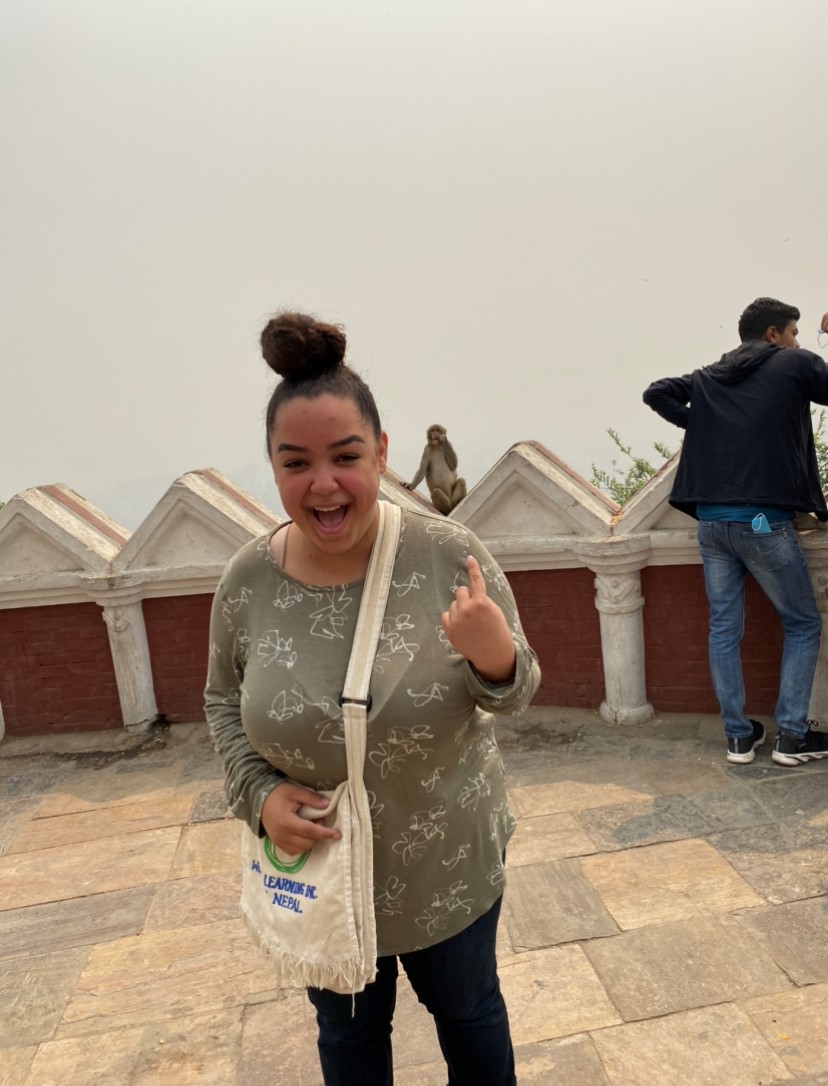 Class Year: 2022
Class Year: 2022
Program: SIT India: Public Health, Gender, and Community Action (based in Kathmandu, Nepal)
Email: vazqna01@gettysburg.edu
Hometown: Chicago, IL
Major/Minor: Health Sciences major; Women's, Gender, and Sexuality Studies minor
Campus Activities: I have been a Tour Guide on campus since my first year and am now a member of the Leadership Team of Admissions, which allows me to assist in the programming and coordinating of the tour guide program. I am a member of the President’s Advisory Board for Inclusion and Belonging with Bob Iuliano where underrepresented students on campus share their experiences on campus and collaborate to bring positive change to the Gettysburg campus. Additionally, I have been involved in the Latin American Student Association and will be serving as their co-President for the 2021-2022 school year, where I will help manage and execute biweekly meetings and coordinate campus-wide club events.
Favorite Experience: My favorite experience from my semester abroad was taking a canoe ride through a river in Chitwan, Nepal and walking through the forest. Having grown up in Chicago my whole life, I hardly got the opportunity to explore nature by walking through forests with animals and being only feet away from wild alligators and crocodiles. Although the idea of a canoe ride with wildlife nearby was daunting at first, the experience was very calming and soothing overall. I got to take many amazing pictures of things I could never even fathom existing and such beautiful sights that I felt so honored to exist in for that moment in time. I was grateful to have a local Nepali giving my abroad mates and I a tour of the lake and forest, and it was an amazing nature experience that I will never forget.
New/Exciting Course Abroad: My Public Health: Key Determinants, Gender, & Equity course from my semester in Nepal taught me a lot about both India and Nepal’s healthcare systems and how they target specific populations and concerns within various communities. My favorite part of the course was learning about the access and quality of reproductive healthcare services in India and Nepal, considering my great academic interest in women’s and reproductive health. An interesting fact I learned from this course was how the healthcare systems create simple systems to assist parents who may not be as knowledgeable about the nuances of the healthcare system. For example, there was an issue in India of parents having difficulty remembering what the last shot/vaccine their child(ren) had received. To combat this, India created a system where vaccinations would, in a specific order, be given on a specific location of the child’s body. This was very effective because parents simply had to remember where their child received their last shot, and the healthcare provider would know what vaccine it was based on location. This course opened my eyes to effective and quality healthcare systems and programming that I most likely would not have learned about had I not gone abroad.